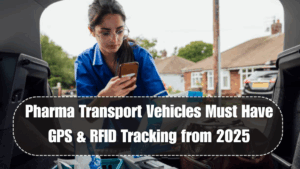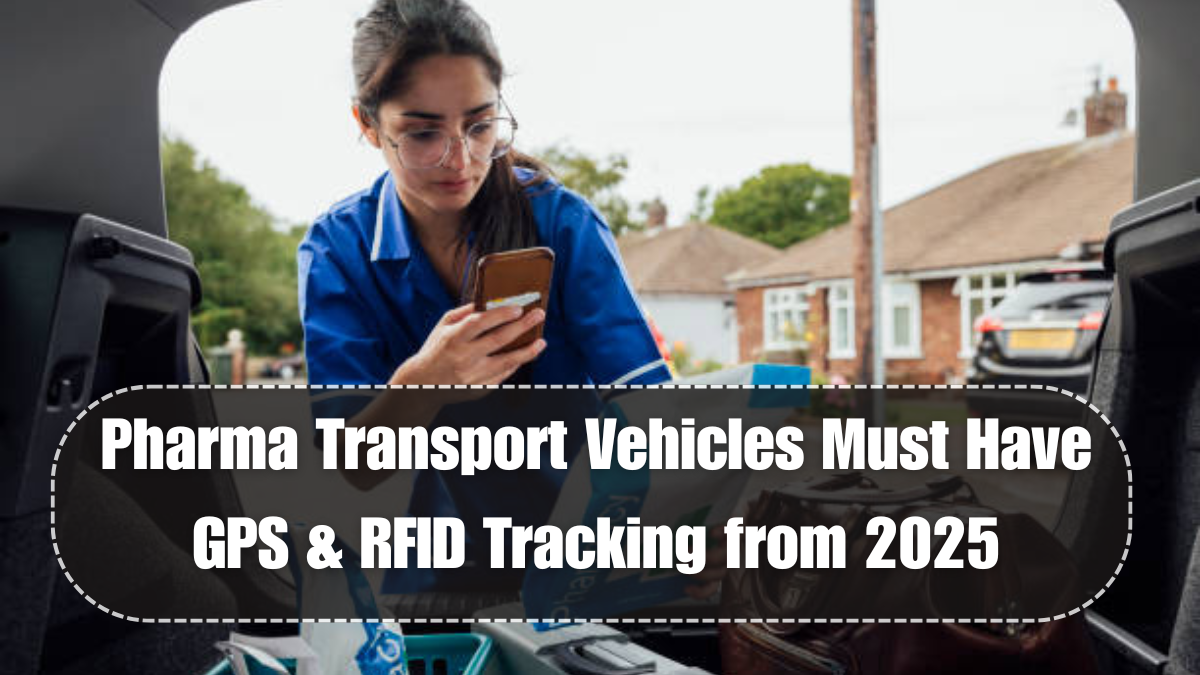In 2025, GPS tracking pharma transport has become mandatory across India for all vehicles involved in pharmaceutical logistics. This landmark decision, driven by the need to ensure safe and traceable drug delivery, has redefined how medicines and sensitive healthcare products are moved across the country. The Ministry of Health and the Department of Pharmaceuticals have collaborated with the Ministry of Road Transport to enforce this move through a centralized digital tracking framework.
With temperature-sensitive medicines, high-value drugs, and vaccines making up a large share of pharmaceutical movement, it’s essential to monitor not only storage conditions but also the exact location and delivery status of consignments. As a result, gps pharma and rfid tracking systems are now essential elements of every registered pharma delivery vehicle.

Key requirements under the new transport tech mandate
The updated policy mandates every pharmaceutical transport van to be fitted with:
-
Real-time GPS devices that transmit location every 30 seconds
-
RFID tags for cargo verification and container identification
-
Geo-fencing alerts to detect route deviations
-
Cold chain sensor integration for temperature reporting
-
Central data sync with logistics control centers
This transport tech overhaul not only improves operational efficiency but also enhances safety, compliance, and accountability in the industry.
How GPS and RFID improve pharmaceutical delivery
The adoption of gps tracking pharma transport plays a critical role in reducing medicine spoilage, theft, and unauthorized route changes. Real-time alerts allow companies to make informed decisions instantly if a delay or anomaly is detected.
Here’s how the combination of gps pharma and RFID helps:
| Benefit | Impact |
|---|---|
| Location tracking | Ensures timely, on-route delivery |
| RFID cargo scanning | Verifies product authenticity and prevents tampering |
| Theft prevention | Alerts for unauthorized stops or detachment |
| Inventory control | Real-time updates of product movement |
| Compliance | Meets regulatory demands for traceability and reporting |
Together, rfid tracking and GPS provide end-to-end visibility across the pharmaceutical supply chain.
Implementation across India in 2025
By mid-2025, more than 75% of pharma carriers in India had installed gps pharma systems, with full compliance expected by the end of the year. Pharma giants, along with third-party logistics providers, have updated their fleets to integrate transport tech tools, many of which are linked to a central monitoring dashboard.
The system allows government agencies, pharmaceutical firms, and transport operators to share secure access to consignment data. This ensures faster audit clearance, timely stock replenishment, and better forecasting during emergencies or surges in drug demand.
Building a transparent, tech-driven pharma delivery ecosystem
India’s decision to mandate GPS tracking pharma transport represents a strong step toward building a transparent and reliable pharmaceutical distribution network. In a country where medical access is a life-critical issue, real-time monitoring and rfid tracking technology reduce inefficiencies and enhance trust.
By investing in next-gen transport tech, the pharma industry is ensuring that every unit of medicine reaches its destination safely, on time, and with full traceability — ultimately benefiting patients across urban and rural India.
FAQs
What is GPS tracking pharma transport?
GPS tracking pharma transport refers to the real-time monitoring of medicine delivery vehicles using GPS and RFID to ensure safe and on-time distribution.
Why is gps pharma monitoring important in drug delivery?
Gps pharma tracking helps prevent route deviations, theft, delays, and ensures that sensitive drugs are transported under strict supervision.
What is RFID tracking used for in pharma logistics?
RFID tracking identifies, scans, and monitors cargo units, helping verify authenticity and reducing the risk of tampering or counterfeiting.
Are all pharmaceutical transport vehicles now required to use this technology?
Yes, by 2025, all drug delivery vehicles in India must be equipped with GPS and RFID systems as per government compliance rules.
How does this transport tech help the pharma industry?
This transport tech ensures full traceability, improves supply chain visibility, and enables faster, safer, and more compliant drug delivery across India.
Click here to know more.
